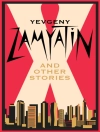James Fenimore Cooper’s ‘The Deerslayer’ is a seminal work in American literature, celebrated for its vivid portrayal of early 18th-century frontier life and its exploration of themes such as honor, nature, and the moral complexities of human relationships. Written in 1841, this novel is renowned for Cooper’s signature style, characterized by intricate descriptions, philosophical musings, and richly developed characters against the backdrop of the American wilderness. As the first chronologically in Cooper’s Leatherstocking Tales series, it delves into the formative experiences of the protagonist Natty Bumppo, illustrating his evolution from a naive youth to a principled man confronted by the dichotomy of civilization and wilderness. James Fenimore Cooper, often regarded as the father of the American novel, exhibits a deep understanding of frontier America, informed by his life experiences growing up in New York and his interactions with Native American cultures. His background as a naval officer significantly influenced his narrative style and thematic concerns, particularly regarding the clash between European settlers and Indigenous peoples. Through ‘The Deerslayer, ‘ Cooper advances his critique of contemporary societal norms and the values of his time. This novel is not only a gripping adventure but also an insightful commentary on the American spirit. I highly recommend ‘The Deerslayer’ to readers interested in the foundational narratives of American literature, as it poignantly addresses the complexities of identity and morality within the context of a rapidly changing society.
Yazar hakkında
James Fenimore Cooper (1789–1851) stands out as a preeminent figure in American literature during the early 19th century. Born in Burlington, New Jersey, he was raised in Cooperstown, New York, a community his father founded. Cooper’s education at Yale was cut short by misconduct, after which he spent time at sea—a foundational experience that prominently influenced his nautical narratives. Cooper’s contribution to the literary canon is most notable for his pentalogy of novels known as the Leatherstocking Tales, which includes ‘The Deerslayer’ (1841). This work, the fifth in the series yet the first chronologically, introduces Natty Bumppo, an American frontiersman who embodies the virtues and complexities of the natural man untainted by civilization—an archetype that resonated with the burgeoning nationalistic spirit of the time. Cooper’s portrayal of frontier life and his exploration of the themes of nature, wilderness, and the encroachment of civilization established him as a pioneer of the early American novel and a significant influence on the Western genre. Despite criticism over his sometimes prolix prose, Cooper’s romanticized yet intricately detailed narratives perennially capture the imaginations of readers, earning him a place among the pantheon of American literary greats. His contribution extends beyond the borders of literature as his insights into the cultural and social spheres continue to be pertinent to discussions of American identity and history.












